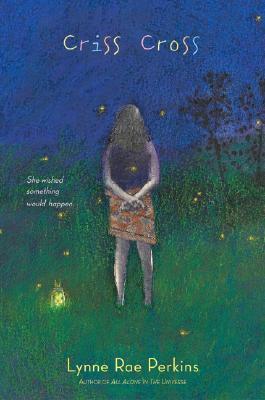
My latest read in my quest to plow through the Newbery award winners is Criss Cross (2005) by Lynne Rae Perkins. It ranks as one of my least favorites so far.
I'd like to think I'm smart enough to see the merits of a book targeted toward kids, but I'm apparently missing something - like characters, a plot, and action.
The book primarily tells the story about Debbie, a teenager who is wishing for something big to happen as her summer kicks in. It doesn't take long before the reader is also wishing for something big to happen. But nothing does.
In fact, by the second chapter, the story shifts to Hector. At this point, the reader is thrown into confusion over who the main character of the story is even going to be. When we get side tangents delving into the circle of other teens surrounding Debbie and Hector, the result is a muddied storyline where I found myself having to read back to keep characters straight.
In the end, the story leaves its audience with this unsatisfying reality: "Maybe it was another time that their moments would meet. Maybe it would happen in a few days, or next week. Maybe it would happen when they were fifty. But just now they had missed, and the jet trails of the crisscrossing moments left an awkward vacuum in their wake."
Slice of life is okay; many a quality story is built on such a concept. Following teenagers through a summer of hanging out is fine, too - if we see real struggle and not just a few unrequited crushes here and there. Ultimately, Perkins has left an awkward vaccum in the wake of her readers. Like Debbie, I wished for something big to happen, but it never did.
The latest book I'm writing, Abigail's Atlantis, tackles a similar task of following both a female and a male character as they are just entering young adulthood. Criss Cross will help me keep in mind that I need to draw the two characters with clear-cut dreams and ambitions and give them strong stories in which to pursue them. Is it too much to hope that I can be more successful at doing so than a Newbery-winning book?












